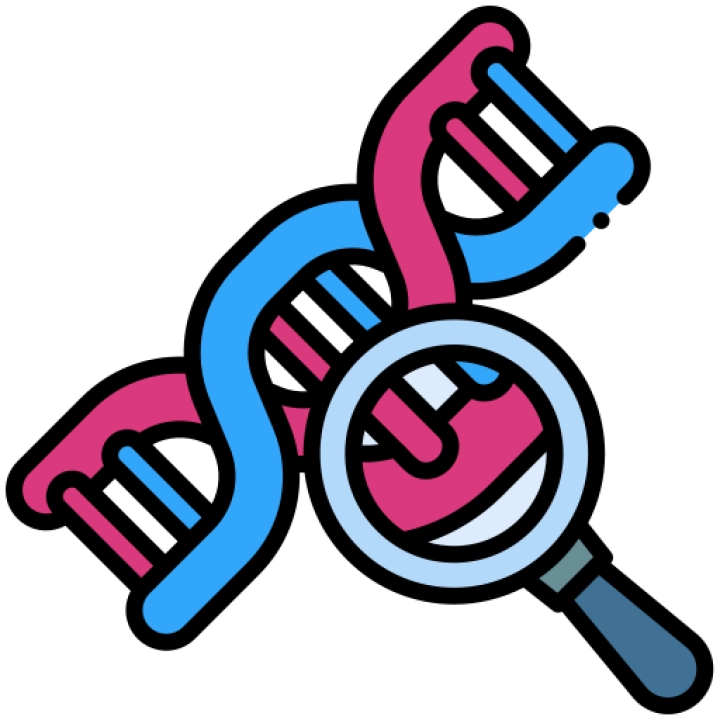College: Institute of Graduate Programs
This specialization provides a comprehensive understanding of the principles and practices of medical biology and genetics, focusing on the study of biological processes and genetic mechanisms and their applications in medicine. Students will explore key topics such as molecular biology, human genetics, genomics, and the role of genetics in diagnosing and treating diseases. The specialization emphasizes the integration of theoretical knowledge and practical skills to prepare students for careers in biomedical research, genetic counseling, healthcare, and biotechnology.
Learning Objectives:
- Understand the basic principles of medical biology and genetics and their role in advancing medical sciences.
- Develop skills in genetic data analysis and understanding the molecular mechanisms underlying diseases.
- Learn techniques for genetic testing, gene therapy, and personalized medicine.
- Explore the principles of genomics and its applications in healthcare and research.
- Understand the ethical, legal, and social implications of genetic research and technologies.
- Analyze the challenges and opportunities in the field of medical biology and genetics.
- Develop critical thinking and problem-solving skills to address contemporary issues in genetics and medicine.
Main Curriculum:
-
Introduction to Medical Biology and Genetics
- An overview of medical biology and genetics, their history, and significance in modern medicine.
-
Molecular Biology
- Basics of molecular biology, including DNA replication, transcription, and translation.
- Techniques for studying molecular mechanisms and their roles in health and disease.
-
Human Genetics
- Study of human genetics, including inheritance patterns, genetic disorders, and population genetics.
- Techniques for analyzing genetic data and understanding genetic variation.
-
Genomics and Bioinformatics
- Principles of genomics, including genome sequencing and analysis.
- Techniques for using bioinformatics tools to interpret genetic data.
-
Genetic Testing and Counseling
- Fundamentals of genetic testing, including diagnostic and predictive tests.
- Techniques for providing genetic counseling and communicating genetic information to patients.
-
Gene Therapy and Personalized Medicine
- Study of gene therapy techniques and their applications in treating genetic disorders.
- Techniques for developing personalized medicine approaches based on genetic information.
-
Ethical, Legal, and Social Issues in Genetics
- Analysis of the ethical, legal, and social implications of genetic research and technologies.
- Techniques for addressing ethical dilemmas and ensuring responsible use of genetic information.
-
Emerging Trends in Medical Biology and Genetics
- The impact of emerging trends such as CRISPR technology, epigenetics, and synthetic biology on medical biology and genetics.
- Techniques for integrating new trends in research and clinical practice.
Assessment Methods:
- Research papers and projects to assess understanding of principles of medical biology and genetics.
- Written assignments and presentations to evaluate knowledge of genetic mechanisms and techniques.
- Participation in group discussions and debates on contemporary issues in genetics and medicine.
- Laboratory experiments and case studies to apply theoretical knowledge to real-world genetic challenges.
Recommended Textbooks:
- "Molecular Biology of the Cell" by Bruce Alberts, Alexander Johnson, Julian Lewis, et al.
- "Human Molecular Genetics" by Tom Strachan and Andrew Read.
- "Genomes 4" by T.A. Brown.
Prerequisites:
Basic knowledge of biology, chemistry, and genetics is recommended. This specialization is suitable for students in biology, biochemistry, medical sciences, and related fields.
Duration:
This specialization typically lasts four academic years, comprising a combination of lectures, laboratory work, and research projects.
Certification:
Upon successful completion, students may be awarded a degree in Medical Biology and Genetics, depending on the program and institution.
Target Audience:
This specialization is designed for undergraduate and graduate students in biology, biochemistry, medical sciences, and related fields, as well as professionals seeking to enhance their skills in medical biology and genetics. It prepares students and professionals to excel in the field of medical biology and genetics, leveraging theoretical knowledge, practical skills, and understanding of emerging trends to contribute to biomedical research, healthcare, and the development of innovative genetic technologies.


